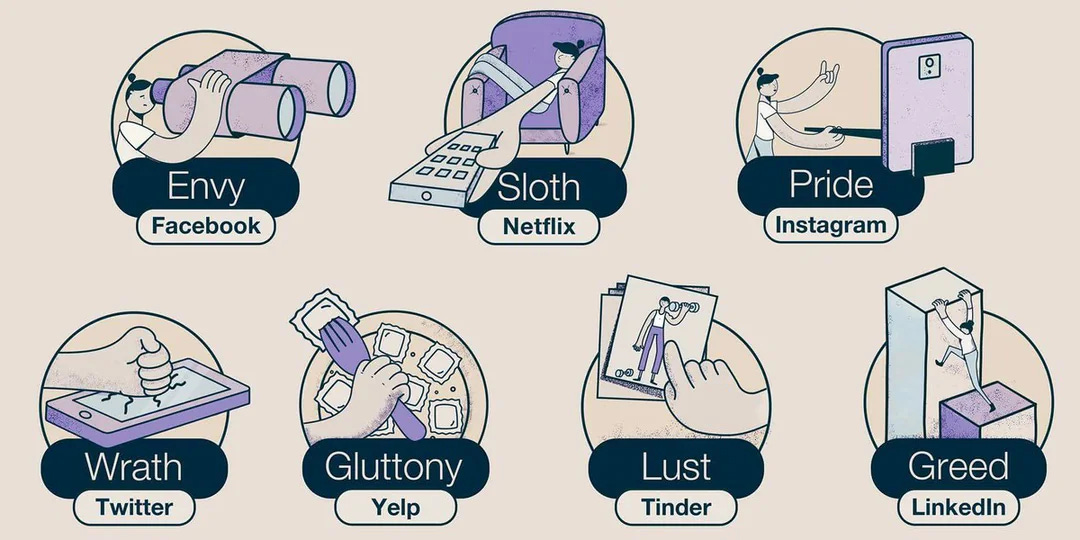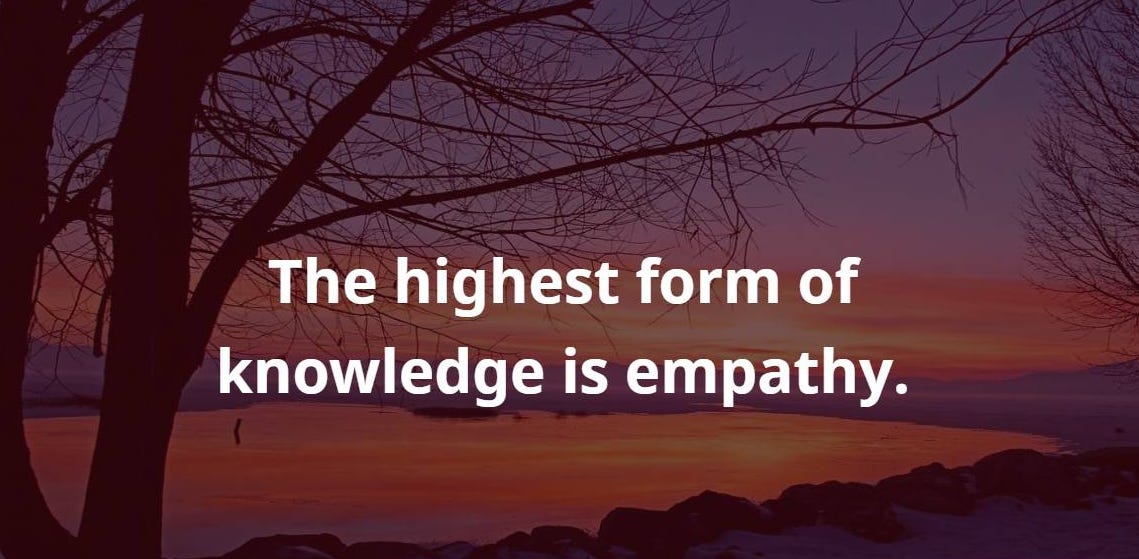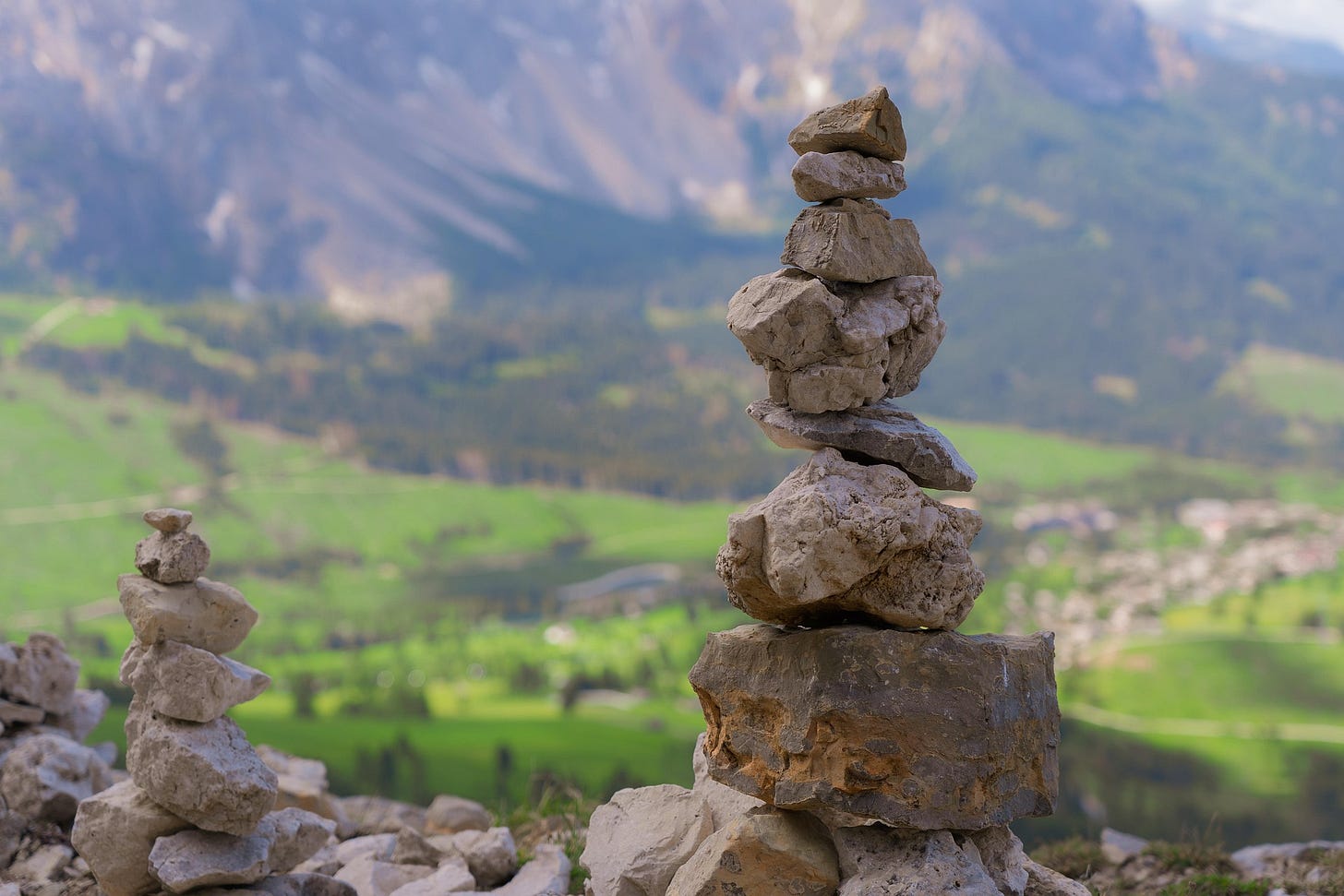Strength = Weakness
We can’t grow not knowing our weakness, which often hides as strength.
Weakness comes in different shapes and forms — some related to habits, others linked to the repetition of learned patterns and automated reactions when thinking, feeling, or, doing.
Categorically speaking there are:
those we know and are aware of;
those we don’t know;
(and/or don’t want to know);
those which aren’t ours by origin, but we become their owner/operator by letting them be;
(consciously or subconsciously);
those we already put behind us;
perhaps having turned them into strengths during the process?
And finally: those we don’t view as weakness because society’s mirror and our own self perception actually pictures them as strength.
The problem with the last one is that strength hiding as weakness can topple even the strongest mountain, yet how to spot such (indirect) weaknesses?
Merely observing our social media usage gives us more than just a few hints already.
“Social networks do best when they tap into one of the seven deadly sins1. Facebook is ego. Zynga is sloth. LinkedIn is greed.” — Reid Hoffman, Co-Founder of LinkedIn (2011)

Not sure whether this comparison is still accurate 14 years later (with TikTok, Uber Eats and others having risen to the top in the meantime), but the underlying notion of the comment still rings true to me. Indeed, what’s the urge when reacting to (or acting on) posting anything that clearly feeds on one of those 7 digital deadly sins, not even serving us but instead making us serve them (and their respective platform masters)?
Leaving social media aside, a good (and easy) starting point for me to discover where weaknesses came from was self analyzing my emotional reactions and behaviors to anything — from receiving messages (emails, texts etc.), having calls or meetings in a business environment or during in-person interactions at private gatherings.
Interestingly, I could almost always find a trigger linking back to a past experience, memory or simply found myself caught up in one of our seven main moods, as written about extensively in:
You may also be interested in:
The Hardest Weaknesses
The most sticky weaknesses in my life are those where I found myself either to be a victim of my own creation (or was just exposed to in a situation I couldn’t do much about) and had formed a strong memory and attachment with it, thereby only re-feeding a possible trauma all over again, until consciously deciding to walk a different path the next time being backed against the same corner…
Whilst hard, these repetitive situations (where our weakness shines) at least tend to stare us in the face. On the contrary, those we spot the least are the ones we (and others) typically consider as strengths and therefore are far harder to deal with. They’re the golden goose nobody wants to disappoint, especially not ourselves once we’ve started to define or decorate ourselves with them.
Unfortunately the reality is: without knowing (all) our weaknesses (including those we would typically view as strengths), and addressing them equally, we can’t truly grow.
Some Examples:
You may be extremely knowledgeable in a certain area and people come to you for advice given your authority on the subject which you love to share about. Oftentimes this means you’re all too easily giving out valuable information that people may or may not be ready to process. Worse: sharing without validating can lead to a situation wherein whatever happens with the information by whoever, people could eventually be pointing fingers at you as the credible source for it.
Similarly, you may be a super empathetic person, even killing an annoying fly or mosquito is out of question for you. Yet, when it comes to you being stung by the same insect you protected in front of others before — the end of your emphatic journey arrives as quickly as that fly’s final writing on the wall.
Or, perhaps, you’ve defined your principles as your moral compass. They’ve kept you grounded and on track, helped you do the right things over and over, until of course they turned to rigidness and now instead of continuing to keep you on your path, they start to lead you to a strict enforcement of rules, thereby limiting yourself or even hurting others in the process.
There are many more examples one could think of. I for one am a sucker for helping others out. Be it a connection, that introduction, some advice or that key piece of information one was looking for — somehow it comes naturally and easily to me, which makes “acquiring things” one of my core strengths. However: when to pass the same on freely, or whether against a condition or for a fee — it’s far harder to negotiate that with yourself when you simply enjoy being the facilitator of helping others out in getting what they want or need.
It was a super hard learning curve for me. In fact, even now if I know the answer to a problem or have the right connection in place, I often need to remind myself that timing trumps all conditions and perceptions about strength and weakness.

Master One, Master All
I don’t think strengths and weaknesses are black and white. There is a balanced and harmonious mastery of both we could be focusing on more.
When you don’t know how to turn your weakness into a strength, or, when you haven’t realized (yet), which of your (apparently) biggest strengths is actually your main weakness, you’re not even on the journey.
Even then, without the right reflection, weakness turning into strength could easily grow ego. Similarly, realizing how a strength = weakness can truly be humbling. And artificially refusing to utilize one’s strengths for the benefit of others, is kind of a waste, really.
Neutrality thus is the key, as neither does a weakness have to remain one, nor does a strength automatically manifest the longer term outcomes we associate with it.
The ability to use both equally to manifest one’s true self, to grow, prosper and evolve — beyond the limitations we’ve been born and grown up with, are inherent to our super human nature.
And in that sense, we’re all united.
Yours truly,
Toby
PS: I’m starting small retreats around the world, covering this and many other topics together as group of friends who have the kindness to tell each other what they observe when we ourselves don’t.
Or, as Confucius once said:
"It is more shameful to distrust our friends than to be deceived by them. When I walk along with two others, from at least one I will be able to learn."
So let’s keep learning (from each other), forever, together.
Wikipedia: Seven deadly sins.




